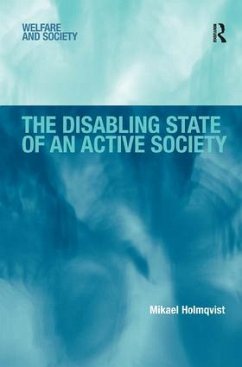Across the traditional welfare states of Europe, Australia, New Zealand and Canada there has been increasing emphasis on 'activation' by the unemployed as a tool for fighting unemployment. The core idea of activation programmes is the integration and empowerment of jobseekers through active work-related measures rather than passive income support. However, the empirical evidence of the efficacy of activation programmes is far from conclusive and there have been no systematic studies of the effects of activation programmes on the lives of the unemployed people who come into contact with them. This book is based on a detailed ethnographic study of the highly praised Swedish rehabilitation organization Samhall. The result is a key volume for those working and studying within welfare, poverty, disability and special needs.
Bitte wählen Sie Ihr Anliegen aus.
Rechnungen
Retourenschein anfordern
Bestellstatus
Storno








